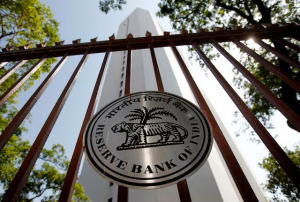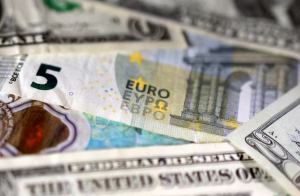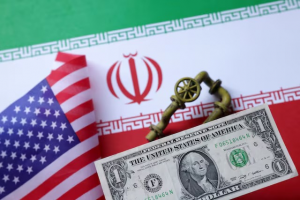U.S. President Donald Trump's sweeping tax-cut and spend legislation could have a big impact on the Czech central bank's investment in U.S. assets, an official said on Tuesday.
Czech National Bank board member Jan Kubicek, speaking at an Official Monetary and Financial Institutions Forum event, said that for the moment the central bank's approach to U.S. assets had not changed.
Get a look at the day ahead in European and global markets with the Morning Bid Europe newsletter. Sign up here.
But the bill, dubbed the "One Big Beautiful Bill Act" would potentially have a "big influence" on the central bank's American portfolio, he said.
Advertisement · Scroll to continue
"Up to now central banks rejoiced (in) zero taxation and this may radically change, so I think we will have to reconsider it."
Part of the budget bill, called Section 899, seeks to tax foreign investors' U.S. income as pushback against countries that impose taxes the U.S. considers unfair.
Kubicek also predicted a decline below 50% for the U.S. dollar's share in global currency reserves over the next decade, as other currencies gain traction. The dollar share currently stands at around 58%.
The custodians of trillions of dollars of global central bank reserves are eyeing a move away from the greenback into gold, the euro and China's yuan as the splintering of world trade and geopolitical upheaval spark a rethink of financial flows, an OMFIF survey showed on Tuesday.
Advertisement · Scroll to continue
"Other currencies will emerge, probably (the) Chinese currency or some other emerging countries. For this reason the weight of dollar will decline," Kubicek said, predicting a drop to 47%.
The dollar, the most popular currency in last year's survey, fell to seventh place this year, the OMFIF survey showed. Slightly fewer than three-quarters of the 75 central banks surveyed said the U.S. political environment was discouraging them from investing in the dollar -- more than doubling from last year.
The average expectation for the dollar's share of global FX reserves in 2035 was 52%, the OMFIF survey showed, remaining the No.1 reserve currency.
Speaking at the same event Isaac Muhanga, a director of financial markets at the Bank of Zambia, predicted the dollar will continue to account for well over 50% of reserves over the next decade, but saw a greater role for China's yuan.
Take a look at the relief in oil markets, U.S. traded crude lost about $10 a barrel in 24 hours after Iran carried out a token airstrike on a U.S. air base in Qatar and signalled
"Given the issues that are surrounding the world today... and just to make reserves management more efficient, I think countries that we are exposed to in terms of trade will increasingly become more important," Muhanga said.
"We're thinking that as China continues on this journey to internationalise its currency, small as it is, it will play an important role in many countries' reserve management and Zambia is included in those countries."













